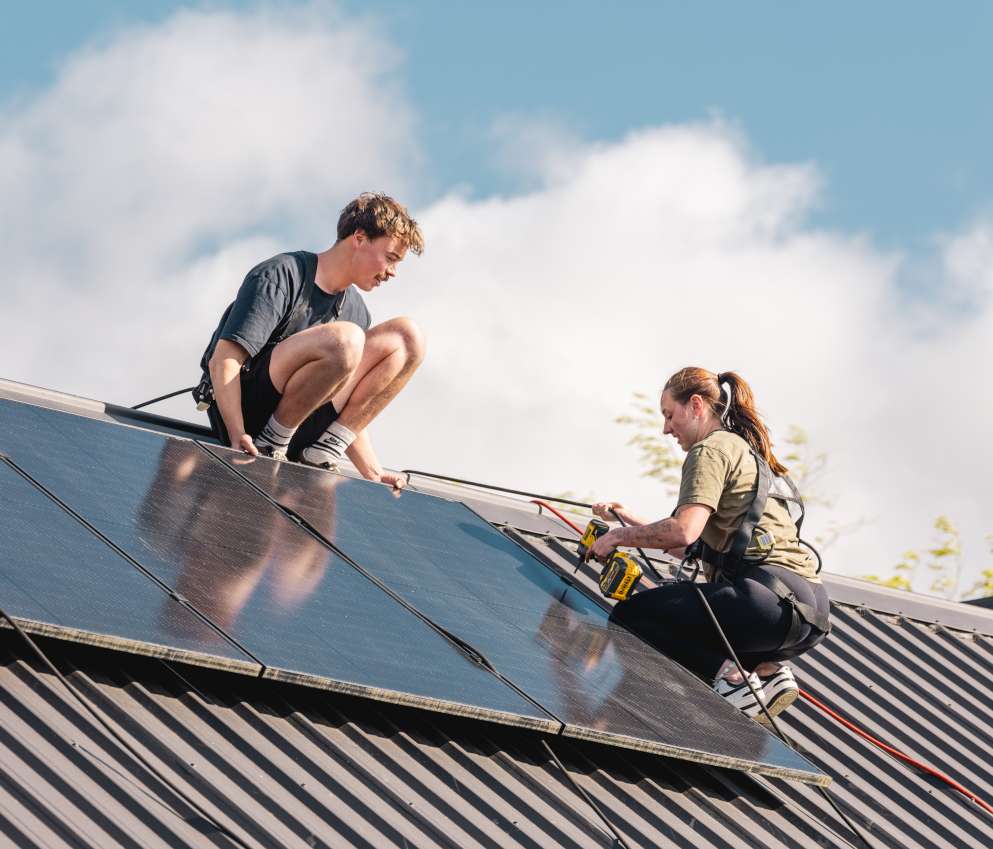Solar power is the fastest-growing energy type in Australia. Some experts say New Zealanders needs to follow suit, to lower households’ cost of energy and help build grid resilience.
According to data from SunWiz, almost 33% of Australian households generate their own power through solar panels on their roofs. In South Australia alone, that number jumps to nearly 50%.
In New Zealand, we’re lagging far behind. According to EECA, 43,641 solar systems were operating in New Zealand in October 2022. While this is a significant increase on an estimated 1,630 solar power systems in October 2013, this still equals less than 2% of all homes and businesses in New Zealand. That means 98% of homes and businesses rely on the national grid for all our power needs.
Some experts are asking why New Zealand isn’t utilising the power of solar energy to supplement the national grid and prevent future power outages – especially because it’s free.
Start your property search
“We need more power – it’s as simple as that,” says Lightforce Solar director John Harman. “But how can we achieve this? Can we build more dams? We can’t get them consented. Can we use more geothermal? We’ve done all we can there. So we’re left with two options: solar and wind.
“Wind power is extremely expensive. But the sun shines every day. Even when it’s cloudy you can generate some power from your roof. Installing more solar power systems really is a no-brainer.”

Put simply, solar panels allow homeowners to capture and use energy from the sun from the roof of their homes. If they want to, they can sell surplus energy back to the grid too. As Harman says, “you can send power directly from your roof to the washing machine – all for free.”
More solar power will make the national grid more resilient.
“If we had more solar, we wouldn’t have outages or grid instability,” says Harman. “If the grid goes down or a car crashes into a power pole, solar will keep the lights on.”
But isn’t installing solar expensive?
“Previously it would have cost you between $20,000 and $30,000 to install solar and it could take 20 years to pay for itself. These days, the average sale of solar is $15,000 and the payback price is just 6-7 years. That, coupled with an interest-free green loan, makes it much more affordable. As energy prices continue to increase, solar will continue to save homeowners money.”
Solar panels also increase the value of a home. A recent report released by Domain in Australia says a house with energy-efficient features like solar power could make 17% more than a house without.
Combine solar power with an EV charger and you’ve got a very attractive listing.
“EVs are going to become increasingly popular in coming years, but EV chargers could cost $4,000. When someone installs solar with Lightforce Solar, we offer them a half-price EV battery. Not only does this make life cheaper for them, if they sell their property in the future it will be more appealing to potential buyers.”
Harman says even though solar power is not widely adopted by New Zealanders it is a robust proposition with a bright future.

“The solar industry in New Zealand is quite new so people can be wary of something different,” he says. “At Lightforce Solar, we want to under-promise and over-deliver for our customers and our business is built on strong ethics and customer support. Before we install anything, we carry out extensive modelling that considers the number of sunlight hours that house experiences and the energy usage of the home, so we know for sure that it’s going to benefit the customer. We actually turn down 20% of our enquiries because we know our services won’t work for them.”
Homes that will get the most out of solar incur an annual energy bill of more than $3,000 and have a tin or steel north-facing roof. Installers can install a full solar system within two days, meaning the sun that shines onto your roof could be directed straight to your washing machine almost instantly.
“It isn’t a question of ‘how will it help me’ anymore; it’s a question of ‘when can I get it done,” he says.
“Solar is the future of New Zealand’s power. Otherwise, we’ll keep running out of power on cold winter nights.”
With eight locations around the country, Lightforce Solar is a 100%-owned New Zealand company that specialises in installing solar panels on residential properties. With a 25-year guarantee on solar panels and a 10-year guarantee on batteries, Lightforce Solar is one of the leading solar installers in the country.
For more information about Lightforce Solar and if solar might be right for your home, visit lightforce.co.nz.









































































